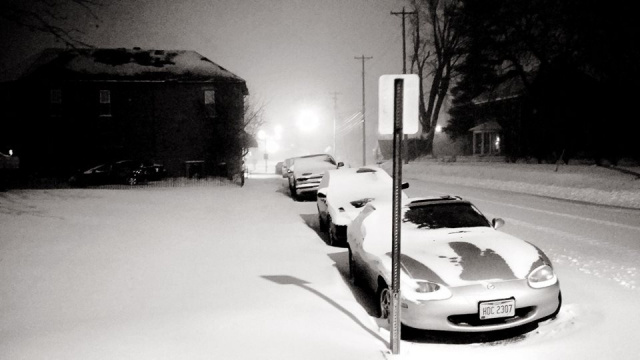
(Columbus, OH) – In a coordinated effort, Governor Mike DeWine and the Ohio Committee for Severe Weather Awareness (OCSWA) recognize November 12-18, 2023 as Winter Safety Awareness Week.
“Understanding weather threats that may impact Ohio will put residents at an advantage to be better prepared,” said Governor DeWine. “Winter Safety Awareness Week is a great opportunity for citizens, schools, and businesses to prepare in advance for the potential harsh effects of winter weather.”
Winter can be a fun and exciting time of the year to go sledding, skiing, and ice skating, but winter can also bring snow, ice, blizzard conditions, freezing rain, and flooding (from heavy rain or snow melt); it’s not unheard of to have severe thunderstorms, or even tornadoes occur in the winter months. As winter approaches, residents are encouraged to enjoy the most wonderful time of the year, but also to be prepared for the harsher side of the season. Below are some tips to help you prepare for the not so pleasant side of winter. Knowing the potential impacts of these hazards will help you be better prepared.
Preparing for winter weather can be as easy as 1-2-3!
- Make an emergency plan. Plans should include each member of your household, including pets. If you have a multi-generational home, please plan for the needs of babies, children, and grandparents. Please also keep in mind household members with different abilities that may require special assistance or use of medical or mobility equipment.
- Build an emergency kit. Have an emergency preparedness “go-kit” ready in case you need to leave the house quickly! Using your plan as a guide, you can have the appropriate items ready to go at a moment’s notice. Make a kit for each of your vehicles in the event you are stranded and need supplies to keep safe until help arrives.
- Practice your plan! Gather your household together so everyone understands the plan and their role in the process.
- Winterize your home.
- Make a household plan and build an emergency kit.
- Have your furnace system and fireplace inspected by a qualified technician.
- Check the batteries in your carbon monoxide and smoke detectors.
- When using alternate heat and power sources (like generators), read the manufacturer’s directions first.
- Winterize your vehicles. Check the tires and fluids.
- Keep your gas tank full.
- Keep an emergency kit in each vehicle.
- Equip your car with an emergency kit that includes first-aid kit, blankets, flashlight, extra batteries, water, snacks, cell phone charger, and emergency flares.
- Give snow plow crews plenty of room to work. They travel slower than most other vehicles on the roadway as they clear snow and treat roadways.
- Allow extra travel time to reach your destination. This helps avoid driving too fast for the conditions.
- Check the weather forecast before engaging in outdoor activities.
- Dress in layers of light and warm clothing. Keep your feet, hands, and head well covered.
- Avoid overexertion when engaging in outdoor tasks, such as shoveling snow. Take breaks when you feel tired or strained.
- If you have pets, bring them indoors. If you cannot bring them inside, provide adequate shelter to keep them warm and make sure they have access to water.
- Sprinkle cat litter or sand on icy patches.
- Be prepared for an emergency.
- Keep enough medication on hand to last several days.
- Know the signs of frostbite and hypothermia.
- Check on your neighbors that may need assistance.










